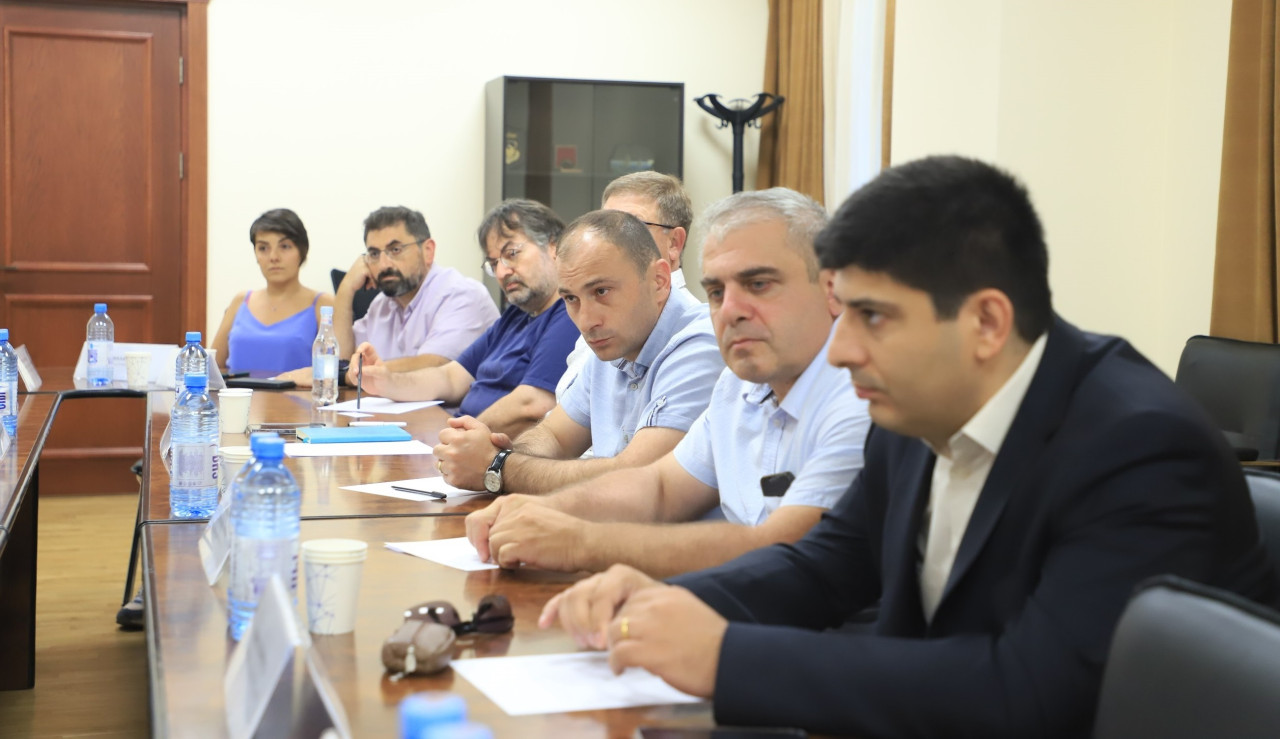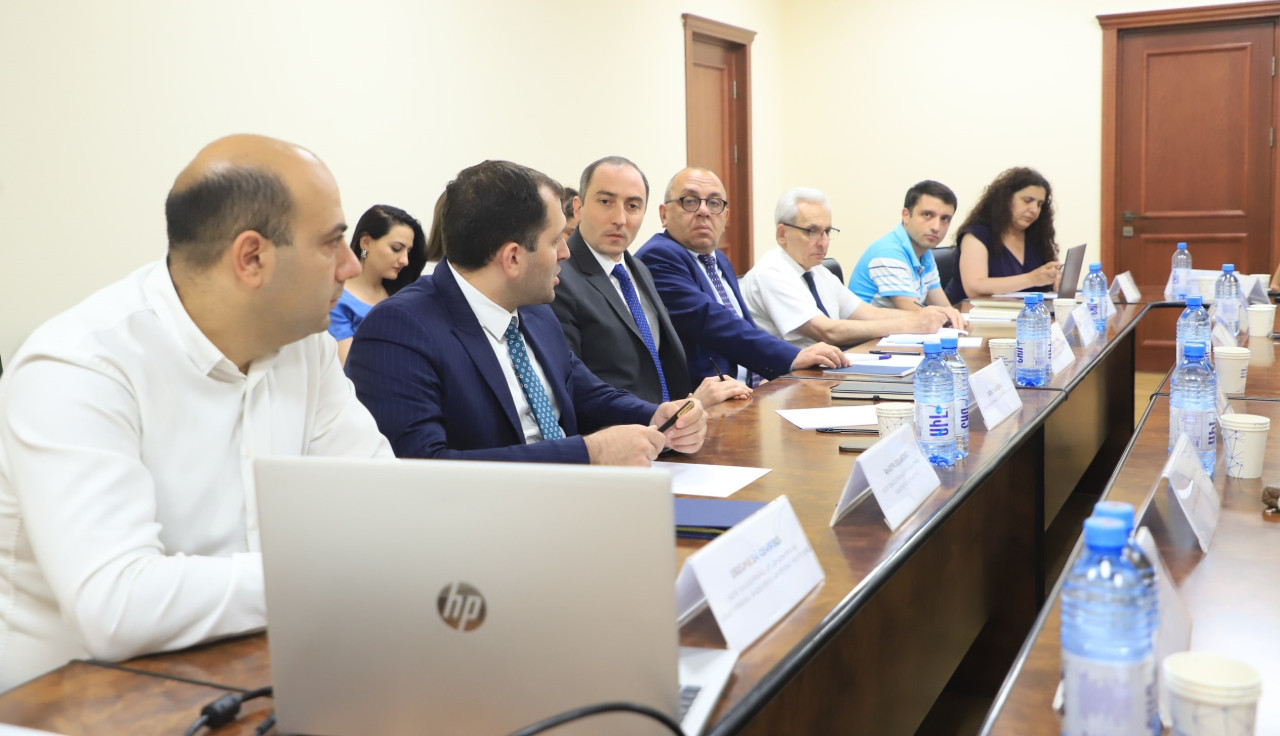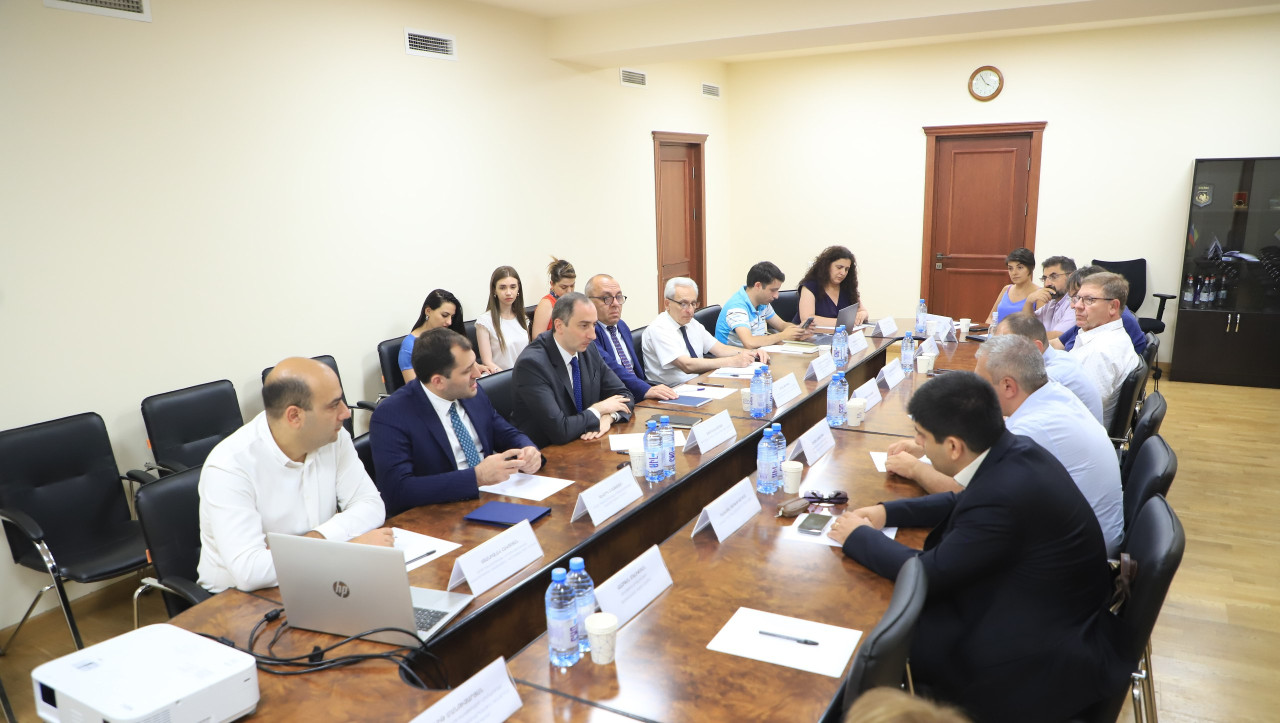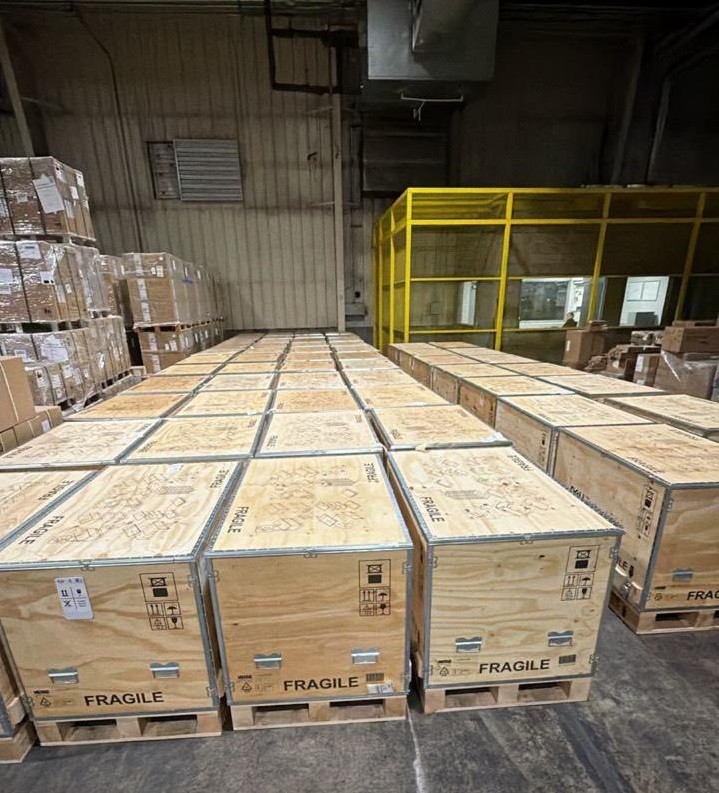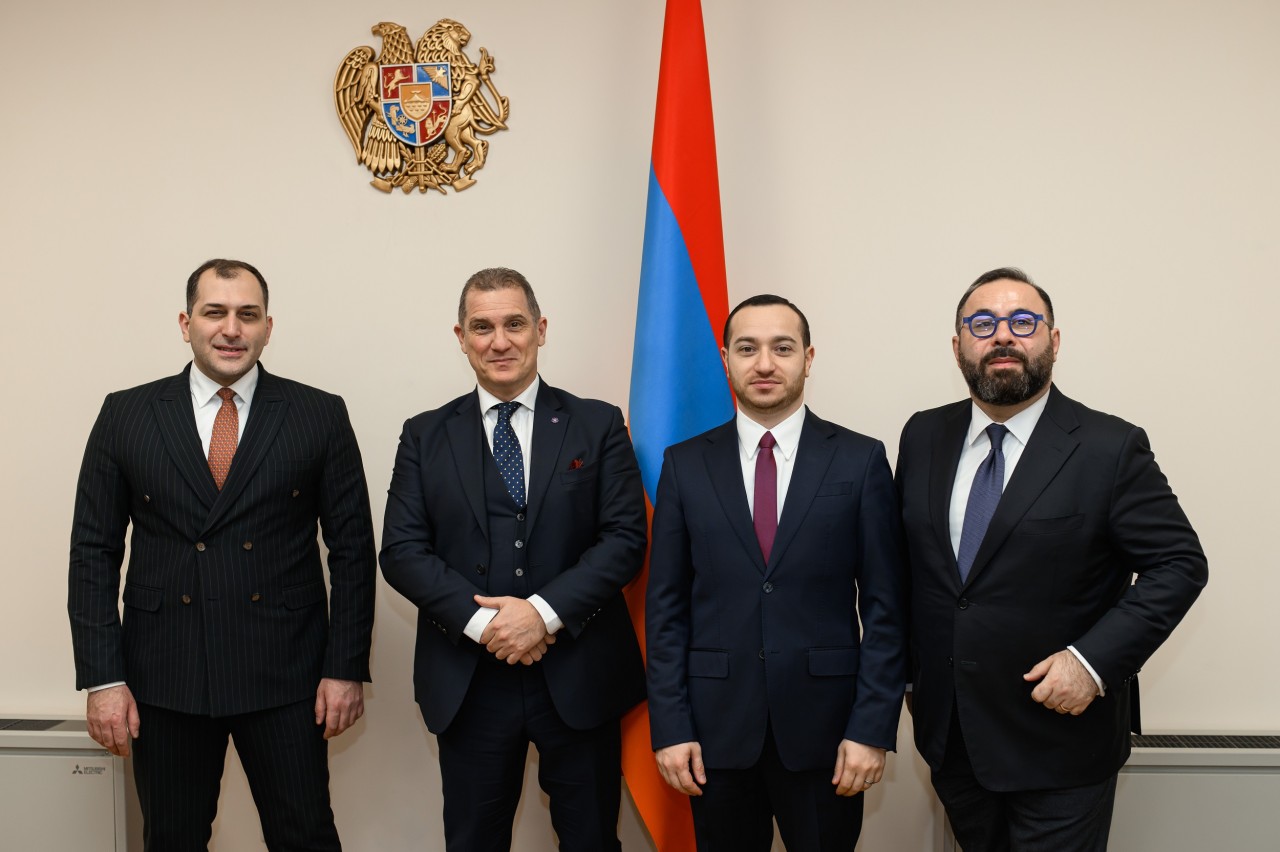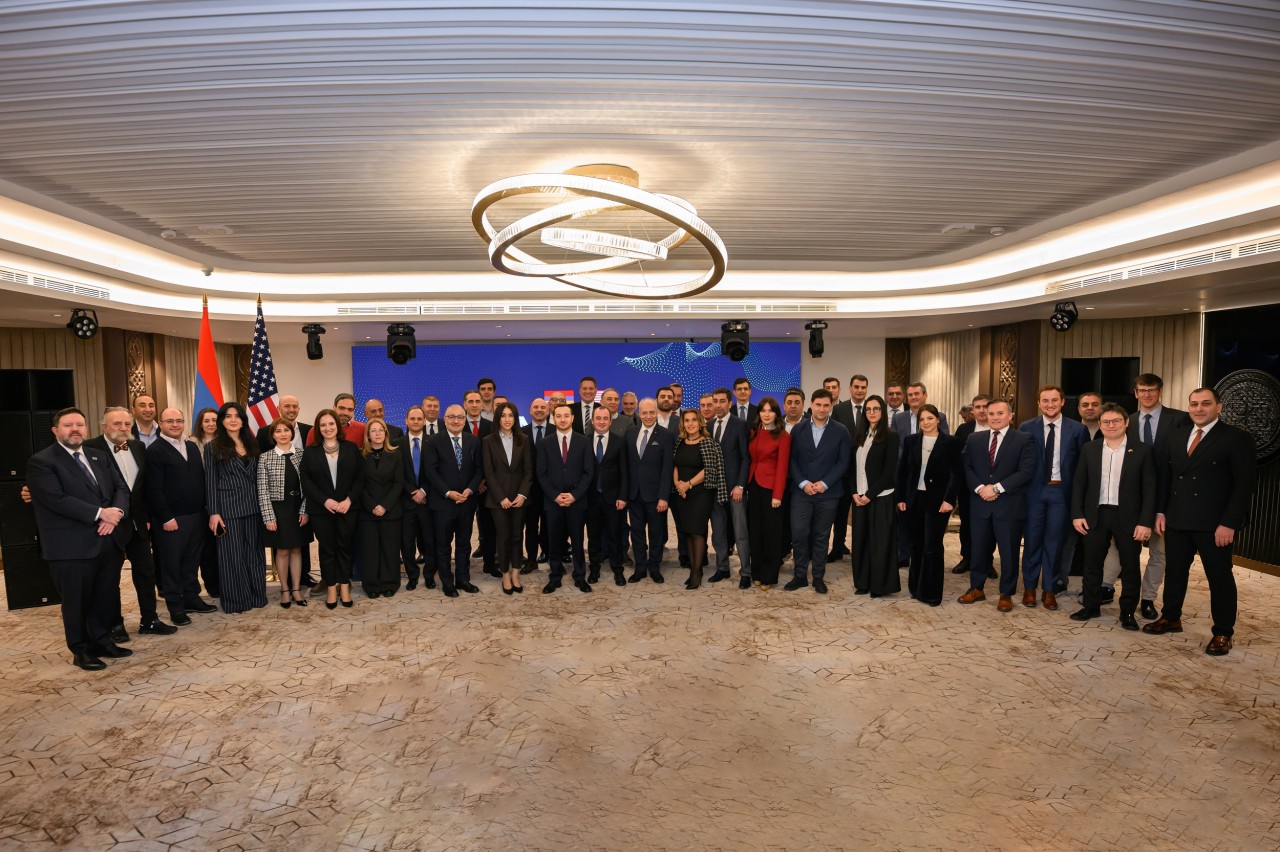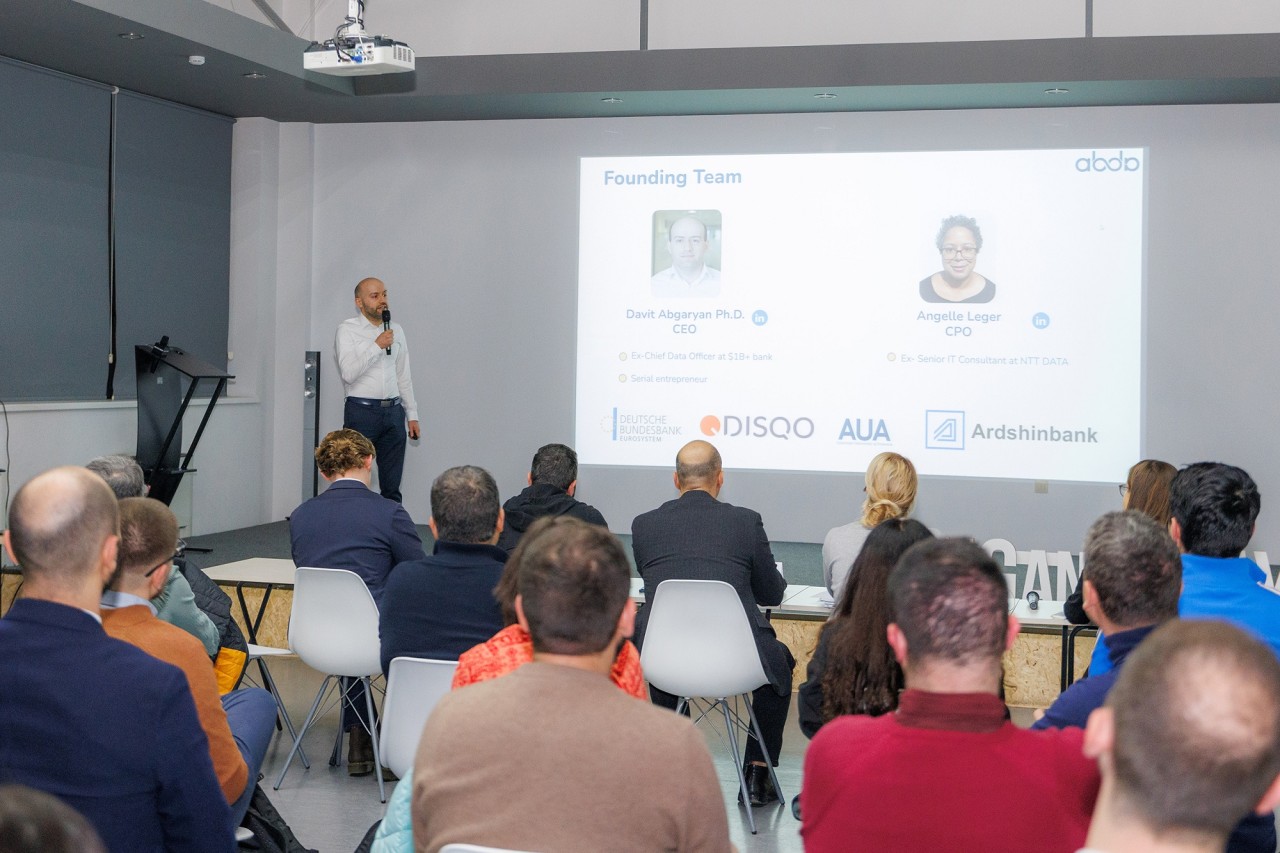Effective models of operation and application of supercomputers were discussed
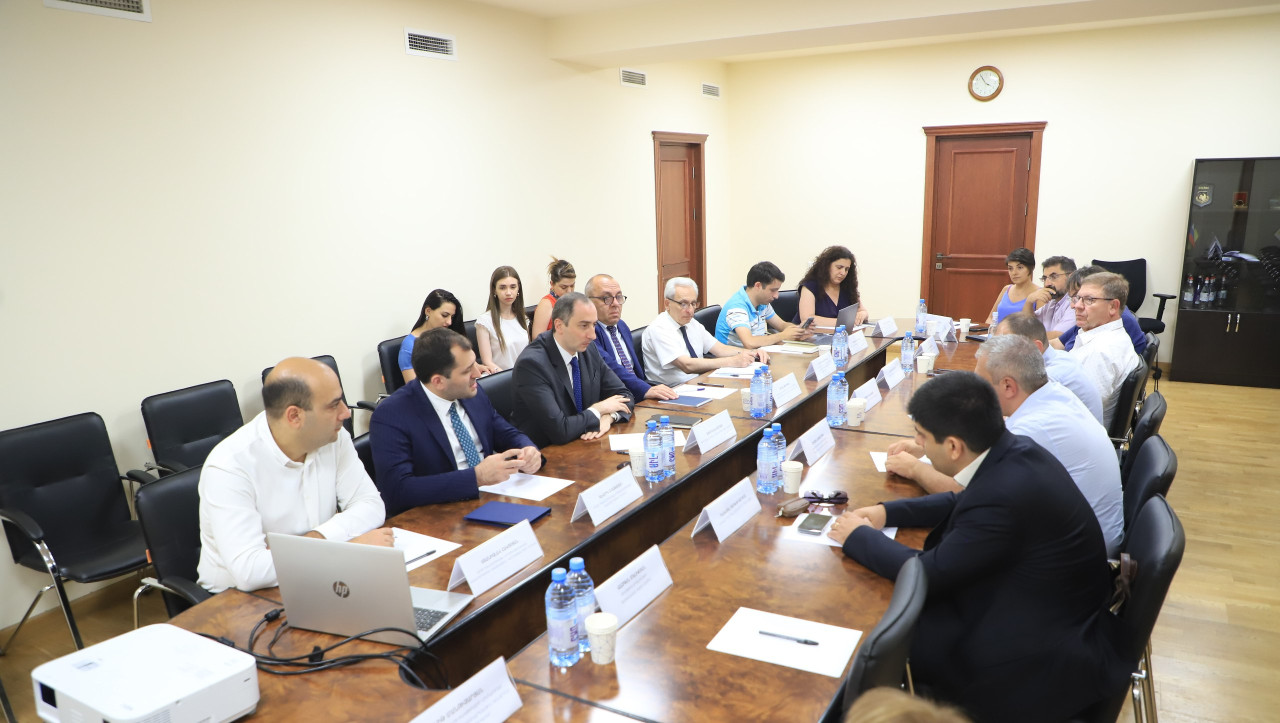
A meeting-discussion was held at the Ministry of High-Tech Industry of the RA to assess the needs for the use of artificial intelligence tools and, in accordance with these needs, the applicability options for a supercomputer based on graphic processors.
As is known, the gift of the Toulouse Research University – a supercomputer – is already in Armenia. The purpose of the discussion was to listen to the opinions of authoritative experts regarding the supercomputer, to assess the needs of its applicability in the economy and science of Armenia.
The meeting was attended by representatives of Yerevan State University, the Science Committee of the RA, the Institute for Informatics and Automation Problems of the National Academy of Sciences of the RA(IIAP), the Center of scientific research and innovation processing of NPUA, YerevaNN laboratory, the Foundation for Armenian Science and Technology (FAST), Synopsys Armenia Company, the Armenian Society of Fellows (ASOF), the Enterprise Incubator Foundation (EIF).
Welcoming the audience, Minister Robert Khachatryan thanked the industry experts for participating in the discussion, stressing the relevance of their opinions and recommendations regarding the needs and priorities for the operation of supercomputers.
HTI First Deputy Minister Gevorg Mantashyan also emphasized the need for such discussions, noting that a supercomputer based on GPU accelerators can form a completely new data ecosystem, due to which the entire logic of organizing work in the most important areas will be transformed.
Hrachya Astsatryan, Director of the Institute for Informatics and Automation Problems of NAS RA presented the capabilities of the supercomputer, the technical process of the installation and the possibilities of application.
The supercomputer provides an opportunity to download and process voluminous data, conduct modern research on “big data”, which will help reduce the workload and increase the efficiency of data processing.
The panelists then presented their views and ideas on the most efficient operations and risks of GPU computing. They also proposed to create a working group, which will include specialists working with CPU and GPU models, stakeholders for more efficient planning and organization of further work.
At the end of the meeting, an agreement was reached to continue such discussions with the aim of developing more targeted models for the use of supercomputers.



